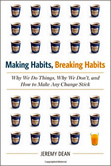Can belief in God predict how someone responds to mental health treatment? A recent study suggests it might.
Researchers at McLean Hospital in Belmont, Mass., enrolled 159 men and women in a cognitive behavioral therapy program that involved, on average, 10 daylong sessions of group therapy, individual counseling and, in some cases, medications. About 60 percent of the participants were being treated for depression, while others had bipolar disorder, anxiety or other diagnoses.
All were asked to rate their spirituality by answering a single question: “To what extent do you believe in God?”
The results, published in The Journal of Affective Disorders, revealed that about 80 percent of participants reported some belief in God. Strength of belief was unrelated to the severity of initial symptoms. Over all, those who rated their spiritual belief as most important to them appeared to be less depressed after treatment than those with little or no belief. They also appeared less likely to engage in self-harming behaviors.
“Patients who had higher levels of belief in God demonstrated more effects of treatment,” said the study’s lead author, David H. Rosmarin, a psychologist at McLean Hospital and director of the Center for Anxiety in New York. “They seemed to get more bang for their buck, so to speak.”
One possible reason for this, he said, is that “patients who had more faith in God also had more faith in treatment. They were more likely to believe that the treatment would help them, and they were more likely to see it as credible and real.”
Of the 56 people who expressed the strongest belief in God, 27 also had very high expectations for the treatment, while nine had very low expectations. In contrast, of the 30 patients who said they had no belief in God or a higher power, only two had high expectations for the treatment.
“It’s one of the first studies I’ve read that actually looks at perhaps a mechanism” for “why we see some correlation between the strength of religious commitment or the strength of spiritual commitment and better outcomes,” said Dr. Marilyn Baetz, a psychiatrist at the University of Saskatchewan who studies the effects of religion and spirituality on mental health. An earlier yearlong study by Dr. Baetz and her colleagues found that people with panic disorder who rated religion as “very important” to them responded better to cognitive behavioral therapy, showing less stress and anxiety, than those who rated religion as less important.
Assessing how religious practices affect health is difficult, in part because researchers can’t randomly assign people to embrace religion or not, the way they might assign participants in a drug test to take a new medication or a placebo. Most studies of this relationship are observational, and people who are more or less religious may differ in other important ways, making it difficult to know whether religious faith is actually causing the effect or if it is a result of to some other factor.
But teasing out the effects of faith on treatment outcomes may be an important goal. Most Americans believe in God — 92 percent, according to a 2011 Gallup poll, though the percentage among mental health professionals may be considerably lower. One study from 2003 found that 65 percent of psychiatrists said they believed in God, compared with 77 percent of other physicians.
Previous research has associated church attendance with increased life expectancy and, in some studies, a reduced risk of depression. But this study looked not at how often the participants went to church or at their religious affiliation but at their belief in a higher power.
“I think it’s a scientifically sound way of measuring things that have to do with people’s experience of spirituality,” said Torrey Creed, a psychologist at the Beck Institute for Cognitive Behavior Therapy, near Philadelphia. “I think about this as a study of cognitive styles, that there’s a pattern of thinking that helps people get better in treatment. And two examples of this pattern of thinking are ‘I believe in treatment’ and ‘I believe in God.’”
Randi McCabe, director of the Anxiety Treatment and Research Center at St. Joseph’s Healthcare in Ontario, said, “People’s belief that something is going to work will make it work for a significant proportion of people,” similar to the placebo effect.
“Your belief that you’re going to get better, your attitude, does influence how you feel,” Dr. McCabe continued. “And really, in cognitive behavior therapy, that is really what we’re trying to change: people’s beliefs, how they’re seeing their world, their perspective.”
Dr. Rosmarin offered further explanation for why religious faith might aid psychiatric treatment. “There’s a vulnerability associated with physicality,” he said. “I think people, psychiatric patients in particular, might recognize that vulnerability and recognize that things can’t be counted on.
“Sometimes medications don’t work, and sometimes psychotherapy doesn’t work,” he continued. “But if someone believes in something that is metaphysical, if someone believes in something spiritual, which would ostensibly be eternal, permanent, unwavering, omnipotent, then that could be an important resource to them, particularly in times of emotional distress.”























































































































